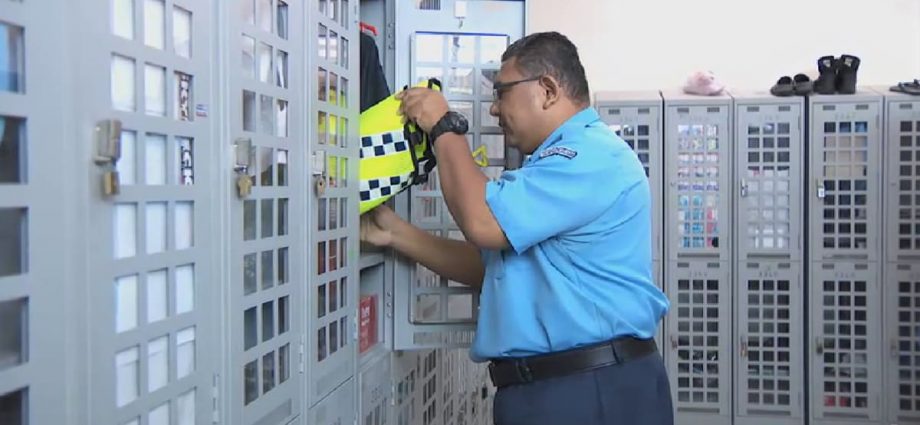
When he heard the initial news of his transfer, he was worried because of the learning curve and job uncertainty.
But after going through the programme and settling into his new role of a SATS police constable, Mr Rozaimi said he hopes his newly acquired skills can lead to more opportunities.
“With the trainers giving me support, I managed to go through the training. I’m grateful that the company moved us to a different department, and we have different areas to work on,” he said.
“I gained more skills after that. And here I am, as a full-fledged auxiliary police officer … it gives me more confidence and I can help with safe travel for others.”
As travel restrictions ease and the sector recovers, manpower needs will be ramped up and more workers are expected to participate in the programme, industry players said.
“Where there is growth, definitely there is progress. With progression, we will see that there are more job opportunities for a lot of workers to be attracted into this industry,” said Mr Vincent Chan, senior vice president of passenger services at SATS.
POPULAR AMONG OTHER SECTORS
After air transport, the career conversion programme was also popular for those among the financial services – with about 3,600 candidates – followed closely by the early childhood education sector.
Over at the hospitality industry – with the number of hotel professionals taking up the course in fourth place – businesses are hoping that the initiative will help attract new hires and retrain existing ones.
Housekeeping clerk Nancy Toh, for instance, signed up for a course to switch departments instead of quitting her company, when she grew out of her role in reservations.
“I have been doing reservations for over 10 years and the job and duties are quite flat and boring,” said Ms Toh, who works at the Copthorne King’s Hotel Singapore. “So I changed to housekeeping. The job, the duties, are quite challenging.”
She said the initiative has honed her digital skills, which she hopes will give her an advantage when it comes to promotions.
Staff strength at her workplace is at about 70 per cent, and the hotel has been encouraging employees to take up the career conversion programmes to upskill.
“We work very closely with WSG. We trained 12 associates last year to go through that process,” said Mr Andy Tan, senior vice president of global operations at Millennium Hotels and Resorts.
Mr Tan said that if more roles are introduced in the programme, such as customer associates and jobs related to food and beverages, more industry players will be attracted to participate in the initiative.
CALL FOR UPGRADES TO PROGRAMME
Singapore’s labour movement said that upgrades can be made to the career conversion programmes, especially to address concerns by mid-career workers. These include additional financial support to mitigate fears of having to take a pay cut.
“For these mid-career switchers, there is always a period of transition, when either they lose their job or they decide to switch career,” said Mr Desmond Tan, deputy secretary-general of the National Trades Union Congress (NTUC).
“This is where we hope the Government will support them in terms of better financial support, either in the form of jobseeker financial support, or giving them some kind of training allowance to give them a peace of mind.”
Manpower Minister Tan See Leng told CNA’s Singapore Tonight on Wednesday (Mar 1) that the Government has invested significantly to help the local workforce upskill and stay relevant.
“We invest in companies to help them organise the redesign of jobs … in terms of upskilling, reskilling and (using) the job transformation maps to help companies to understand at what stage the automation and technological development is at,” said Dr Tan.
The WSG, together with the Manpower Ministry, also offers companies support in the career conversion programme, he said, adding that courses for mid-career workers above 40 years old are funded up to 90 per cent to keep them skilled and employed.
NTUC’s Mr Tan added that efforts to entice more firms to come on board should be magnified, as it will help to raise awareness about the benefits of hiring mid-career workers.
“They do have some skill sets that are relevant – soft skills, leadership, and some of the technical skills that may be relevant for a new sector as well,” he said.
“It’s a win-win for both employers, as well as mid-career individuals.”

